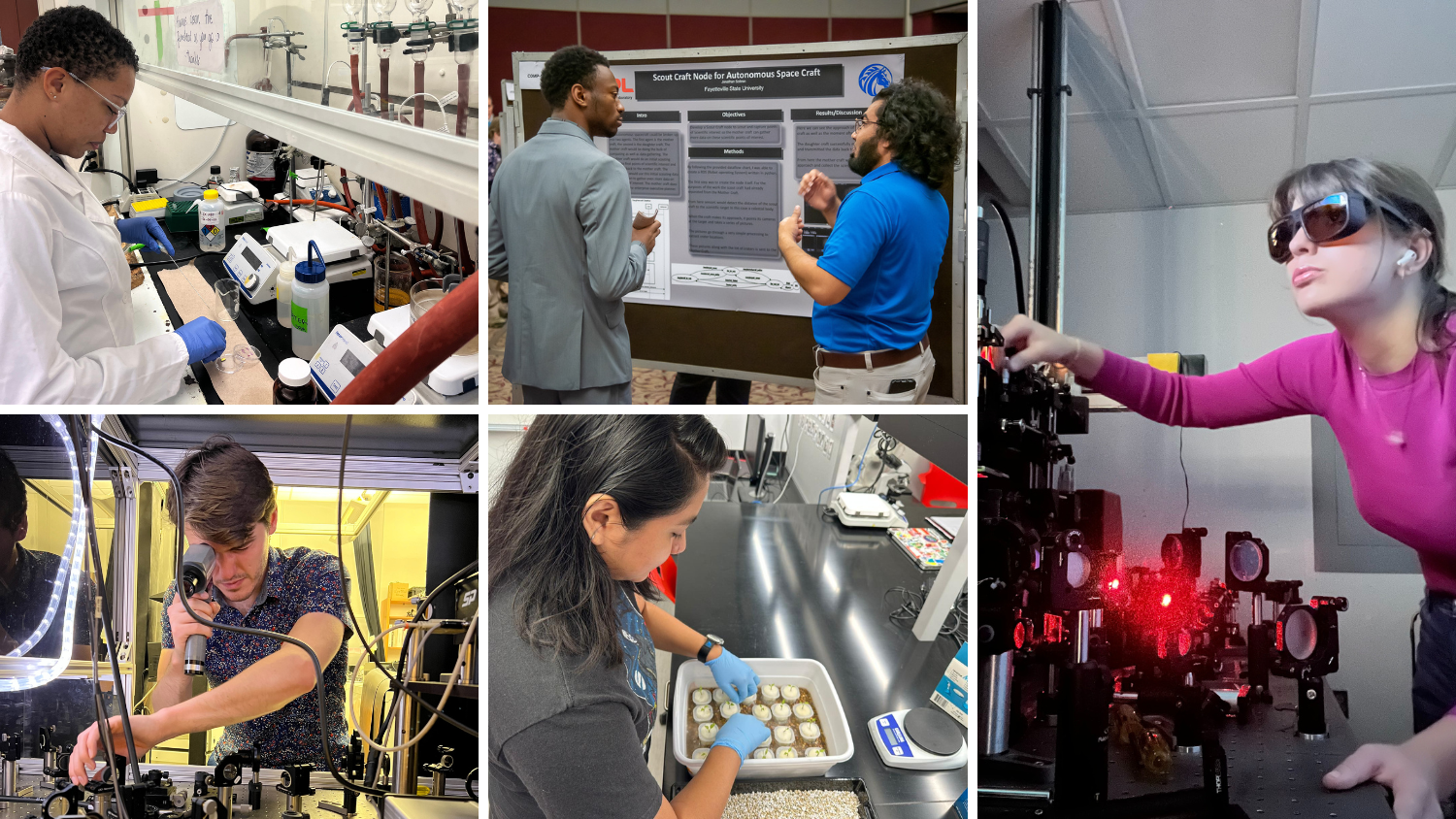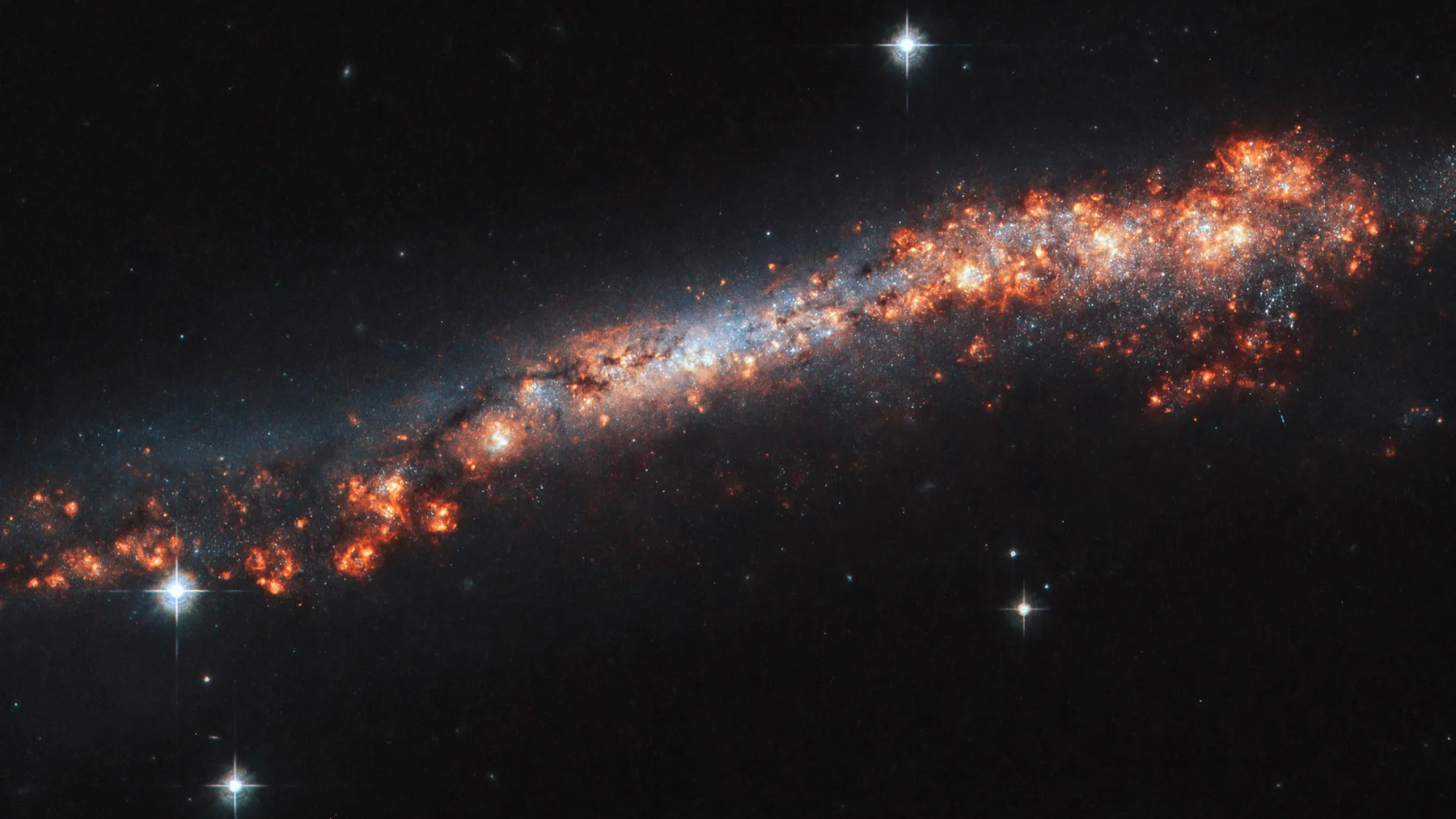Teams Selected for NC Space Grant 2022-23 Team Experience and Competition Award
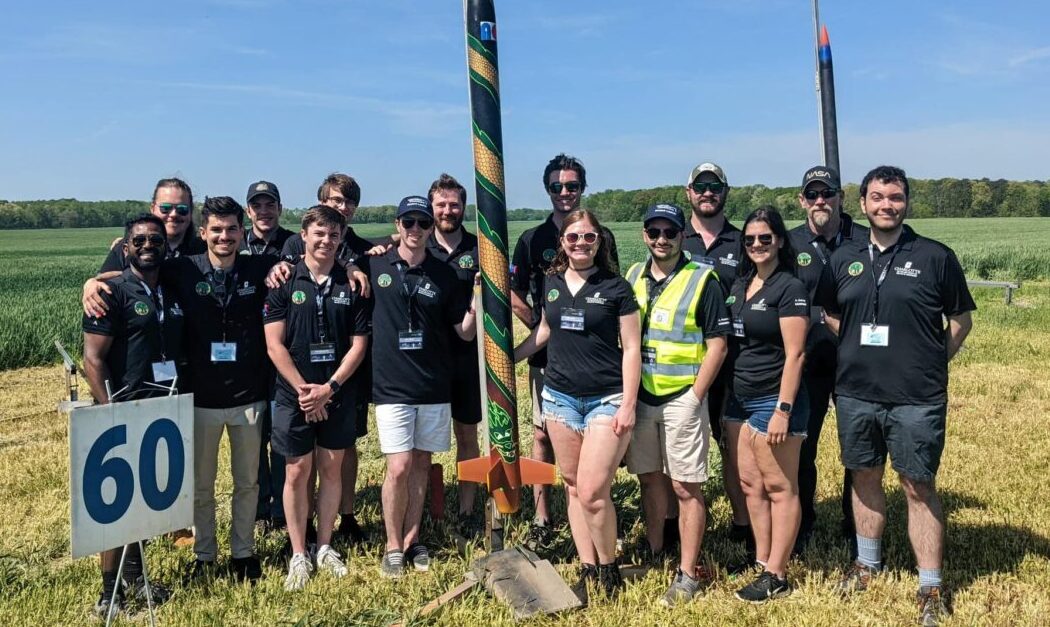
Above: University of North Carolina (UNC) at Charlotte 49ers Rocketry Club with their rocket. The team won first overall in the 2021-2022 NASA Student Launch competition. Credit: UNC Charlotte
NC Space Grant is pleased to announce the winners of this year’s Team Experience and Competition Awards, which help undergraduate teams participate in competitions either sponsored or sanctioned by NASA or other STEM-related organizations. Competitions are in the fields of engineering, science, technology and/or mathematics (STEM), and complement the academic studies of the team members.
“These opportunities help students develop the skills and knowledge base, as well as build strong teamwork capabilities, necessary to succeed in STEM careers in the future,” says Sandra Canfield, assistant director of NC Space Grant.
Competitions must provide students with hands-on experiential learning opportunities related to one or more of NASA’s Mission Directorates: Aeronautics Research, Human Exploration and Operations, Science, and Space Technology. Furthermore, NASA is committed to landing the first woman and next man on the Moon by 2024 through the Artemis Mission. Under the Artemis Mission’s programing in STEM education, undergraduate and graduate students will compete in Artemis Student Challenges while building foundational knowledge on topics and technologies critical to the success of Artemis. This year NC Space Grant is supporting Artemis student challenge teams in the Human Exploration Rover Challenge, Lunabotics, and NASA Student Launch.
NC Space Grant is supporting three teams in the NASA Student Launch Competition. These include a returning team from North Carolina State University, the Tacho Lycos High-Powered Rocketry Club, as well as last year’s overall competition winner, the University of North Carolina at Charlotte 49er High-Powered Rocketry Club. New to the competition this year is the team from UNC-Pembroke, who will be building on experience last year competing in the First Nations Launch, where they placed third overall.
Congratulations to the 2022-2023 grant recipients:
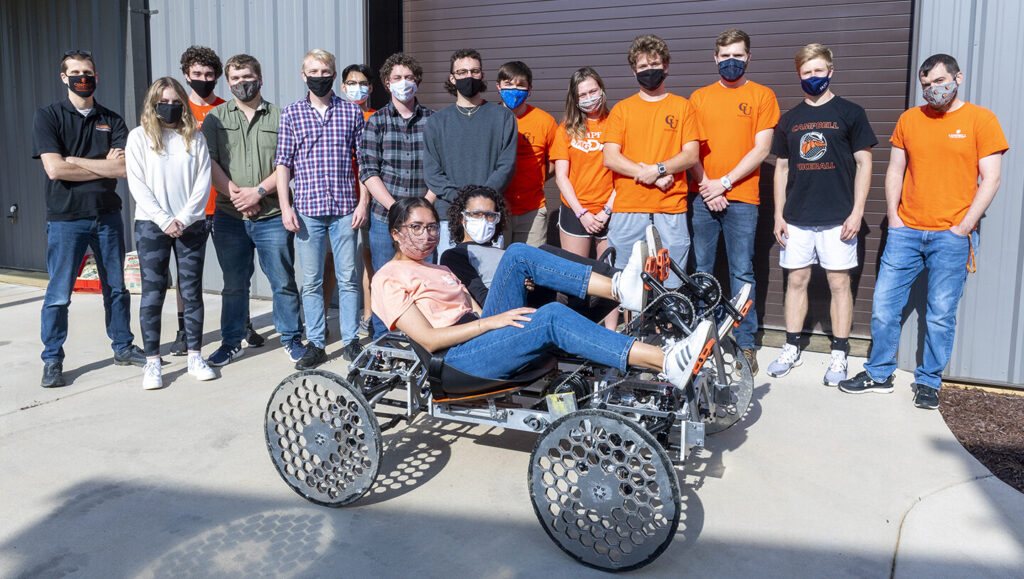
Campbell University, competing in NASA Human Exploration Rover Challenge (HERC), faculty advisor: Lee Rynearson, Ph.D.
Lenoir-Rhyne University, competing in Spaceport America Cup, faculty advisor: Doug Knight, Ph.D.
North Carolina State University, competing in American Institute of Aeronautics and Astronautics (AIAA) Design/Build/Fly Challenge, faculty advisor: Jack Edwards, Ph.D.
North Carolina State University, competing in AUVSI Student UAS Competition and the 2022-2023 NASA Student Launch Competition, faculty advisor: Felix Ewere, Ph.D.
North Carolina State University, competing in Robosub, faculty advisor: John, Muth, Ph.D.
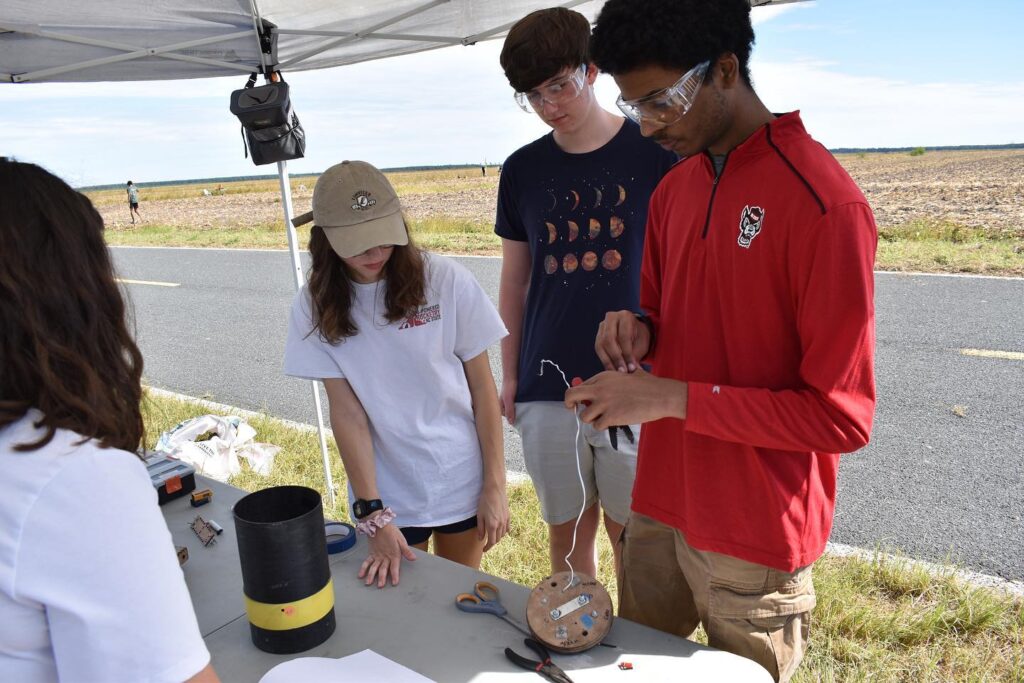
University of North Carolina at Asheville, competing in the NASA Robotic Mining Competition: Lunabotics 2023, faculty advisor: David Ramsey, Ph.D.
University of North Carolina at Charlotte, competing in Institute of Electrical and Electronics Engineers (IEEE) SoutheastCon 2023 Hardware Competition, faculty advisor: Samuel Shue, Ph.D.
University of North Carolina at Charlotte, competing in NASA Robotic Mining Competition: Lunabotics 2023, faculty advisor: Aiden Brown, Ph.D.
University of North Carolina at Charlotte, competing in 2022-2023 NASA Student Launch Competition, faculty advisor: Arun Vishnu and Suresh Babu, Ph.Ds.
University of North Carolina at Pembroke, competing in 2022-2023 NASA Student Launch Competition, faculty advisor: Steven Singletary, Ph.D.
☽
- Categories:
